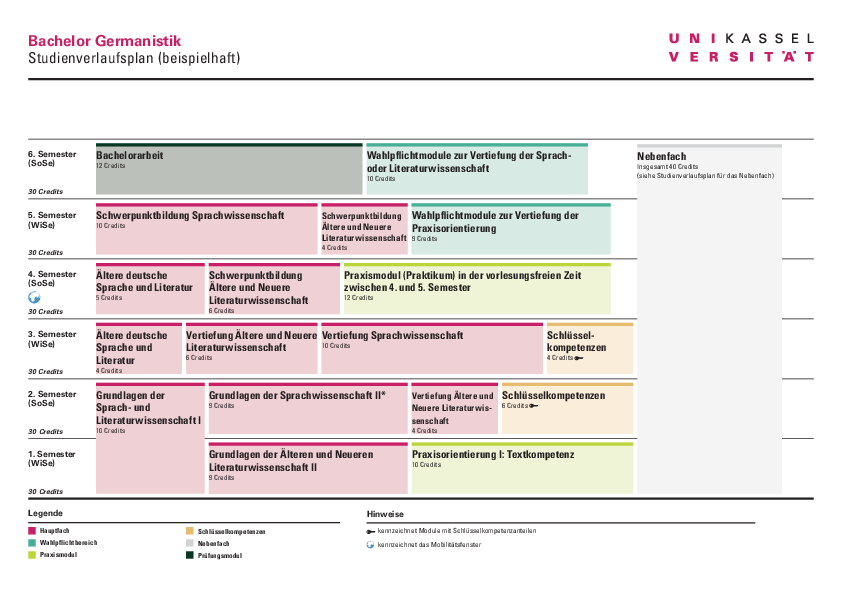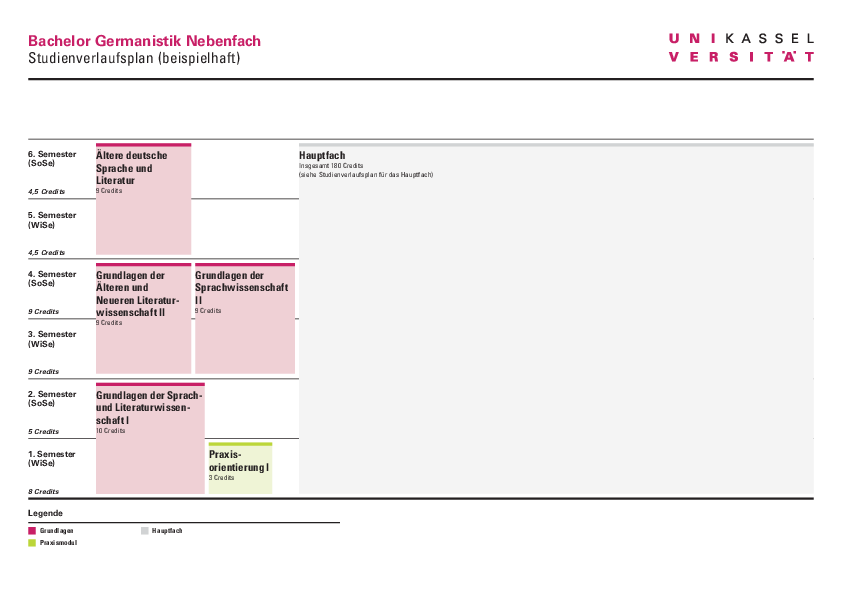How is the course structured?
This page contains automatically translated content.
The modular structure of the BA in German Studies is divided into a basic, a specialization and a focus area as well as a practice-oriented part. A specific feature of the Bachelor's degree course in German Studies is the close interlinking and cooperation between linguistics and literary studies.
The BA in German Studies provides a broad subject-based education in preparation for a Master's degree, which may be followed by a doctorate. In addition, its practical components lay the foundation for a successful entry into various professional fields in culture, media and business.

